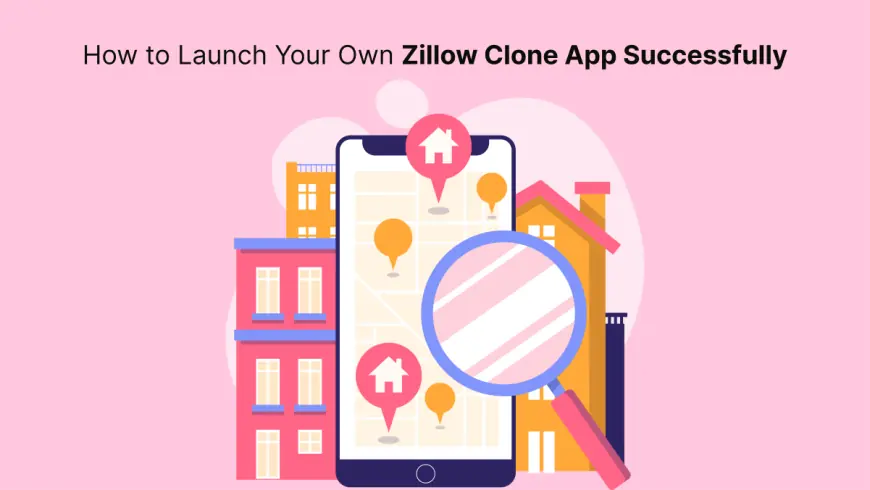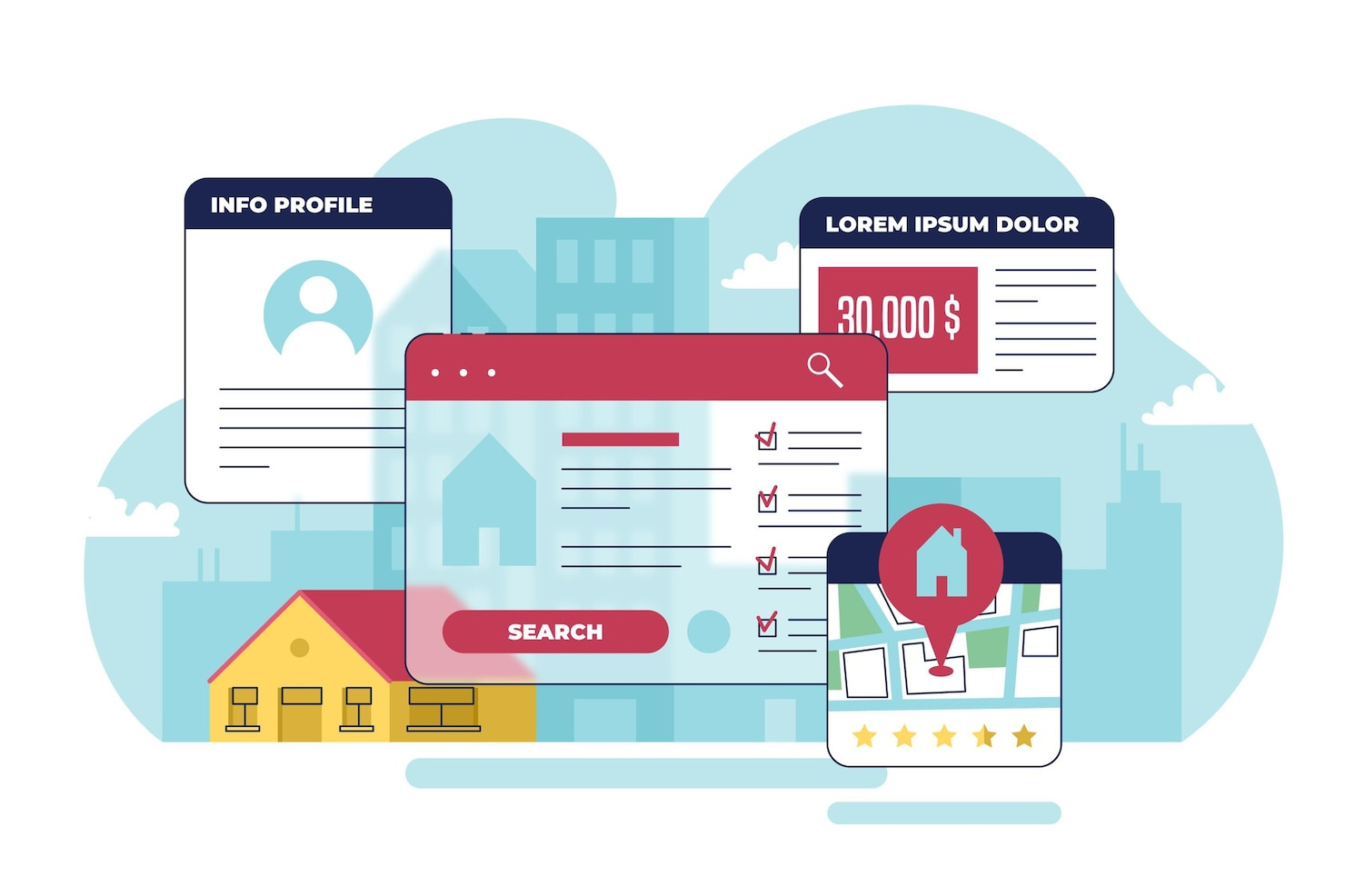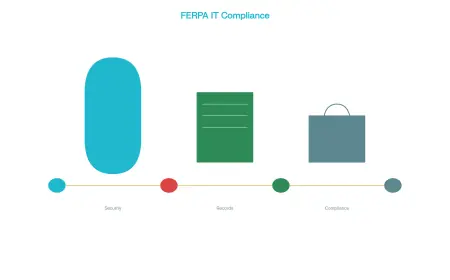How to Launch Your Own Zillow Clone App Successfully
Learn how to launch your own Zillow clone app successfully. Explore features, strategies, and tips to build a profitable real estate platform in 2025.

The real estate market is shifting online at a rapid pace. Today, people are more comfortable searching for properties through apps instead of visiting multiple locations in person. Platforms like Zillow have changed the way buyers, sellers, and agents interact by making property information easily accessible with just a few clicks. If you are an entrepreneur or a startup looking to build a similar app, creating a Zillow clone app can be the right step. However, launching such an app requires proper planning, strategy, and execution. In this blog, we will guide you on how to successfully launch your own Zillow clone app and attract users in the competitive real estate industry.
Understanding the Zillow Clone App
Before launching, you must understand what a Zillow clone app is. It is a real estate platform that replicates the core functions of Zillow, allowing users to search, buy, rent, and sell properties. The app combines listings, maps, images, and tools like mortgage calculators to provide a complete property search experience. While it is inspired by Zillow, a clone app is usually customizable to fit your business model, market, and target audience.
Why Invest in a Zillow Clone App
Real estate apps are one of the fastest-growing segments in the on-demand industry. People prefer apps that save time and provide accurate information. For businesses, it creates opportunities to earn revenue through ads, featured listings, or subscription models. A Zillow clone app reduces the time and cost required to develop a property marketplace from scratch, while still giving you the freedom to add unique features.
Steps to Launch a Successful Zillow Clone App
Step 1: Define Your Business Model
The first step is to identify how your app will generate revenue. Will you charge real estate agents for premium listings, run advertisements, or earn through subscription plans? A clear business model ensures that your app not only attracts users but also brings in steady income.
Step 2: Research the Market
Market research is crucial before launching. You need to understand your target audience and their needs. For example, if you are focusing on urban buyers, features like neighborhood insights and commute times will matter. On the other hand, if your audience is rural property seekers, affordability and land details may be more important. Study competitors in your region and find gaps that your app can fill.
Step 3: Choose the Right Features
The features of your app will define the user experience. Some must-have features include advanced property search filters, interactive maps, high-quality images, mortgage calculators, user profiles, chat systems, and push notifications. You can also add modern features like AI-based recommendations or VR property tours to make your app stand out.
Step 4: Design a User-Friendly Interface
No matter how many features your app has, if it looks confusing or loads slowly, users will leave. Focus on clean design, easy navigation, and fast performance. The interface should be simple enough for first-time users but advanced enough for serious property buyers.
Step 5: Select the Right Technology Stack
Behind every successful app is a strong technology foundation. For real estate apps, you need a reliable backend to handle large volumes of property data, secure servers for transactions, and scalable infrastructure to support future growth. Working with experienced developers will help you choose the right technologies.
Read More: Zillow Business Model Explained: How Zillow Makes Money in 2025
Step 6: Work with Skilled Developers
Launching a Zillow clone app is not just about coding. You need a team that understands real estate workflows, user needs, and the importance of security. Hiring a professional development team ensures that your app is built with the right features, smooth functionality, and long-term support.
Step 7: Test Before Launch
One of the biggest mistakes startups make is launching without proper testing. A real estate app deals with sensitive data, so it must be secure, bug-free, and fast. Testing should cover app speed, data accuracy, search filters, and user experience. You can also release a beta version to a small group of users and collect feedback before the full launch.
Step 8: Launch and Promote Your App
Once your app is ready, you need to promote it to reach the right audience. Digital marketing strategies like search engine optimization, social media ads, influencer campaigns, and email marketing can help you attract users. Partnerships with real estate agencies or brokers can also boost your app’s visibility.
Step 9: Gather Feedback and Improve
The launch is only the beginning. To stay successful, you must regularly update your app with improvements based on user feedback. Adding new features, fixing bugs, and keeping property listings up to date will keep users engaged and loyal to your app.
Common Challenges and How to Overcome Them
Launching a Zillow clone app comes with challenges. One major issue is ensuring accurate property data. If users find outdated or wrong information, they may lose trust. To solve this, build partnerships with verified agents and agencies. Another challenge is competition. Since the real estate app market is crowded, you need to focus on unique features and better user experience to stand out. Finally, data security is critical because users share personal details. Investing in strong encryption and secure payment systems will build trust.
Future Trends to Consider
The future of real estate apps is exciting. Artificial intelligence can be used to provide personalized property recommendations. Blockchain can make property transactions more transparent and secure. Virtual reality and augmented reality will allow buyers to visualize properties without visiting them physically. By staying updated with these trends, you can ensure your app remains competitive in the long run.
Conclusion
Launching a Zillow clone app successfully requires more than just an idea. You need a clear business model, the right features, skilled developers, thorough testing, and a strong marketing strategy. The real estate industry is full of opportunities, and with the right approach, your app can attract a loyal user base and generate consistent revenue. Partnering with an experienced on-demand app development company will give you the technical and business support needed to turn your vision into a successful app that competes with industry leaders.

FAQs
What is a Zillow clone app?
It is a ready-to-use real estate platform inspired by Zillow that allows users to search, buy, rent, and sell properties.
How much does it cost to build a Zillow clone app?
The cost depends on features, customization, and the development team. Basic apps may cost less, while advanced apps with AI or VR will require a higher investment.
How can a Zillow clone app earn revenue?
It can generate income through ads, featured listings, subscriptions, and transaction-based commissions.
Do I need technical knowledge to launch a Zillow clone app?
Not necessarily. With the help of a skilled development company, you can manage the business side while the technical team handles app creation.
How do I make my Zillow clone app stand out?
You can stand out by offering extra features like AI recommendations, VR tours, or localized property insights along with a smooth user experience.
What's Your Reaction?
 Like
0
Like
0
 Dislike
0
Dislike
0
 Love
0
Love
0
 Funny
0
Funny
0
 Angry
0
Angry
0
 Sad
0
Sad
0
 Wow
0
Wow
0

















































